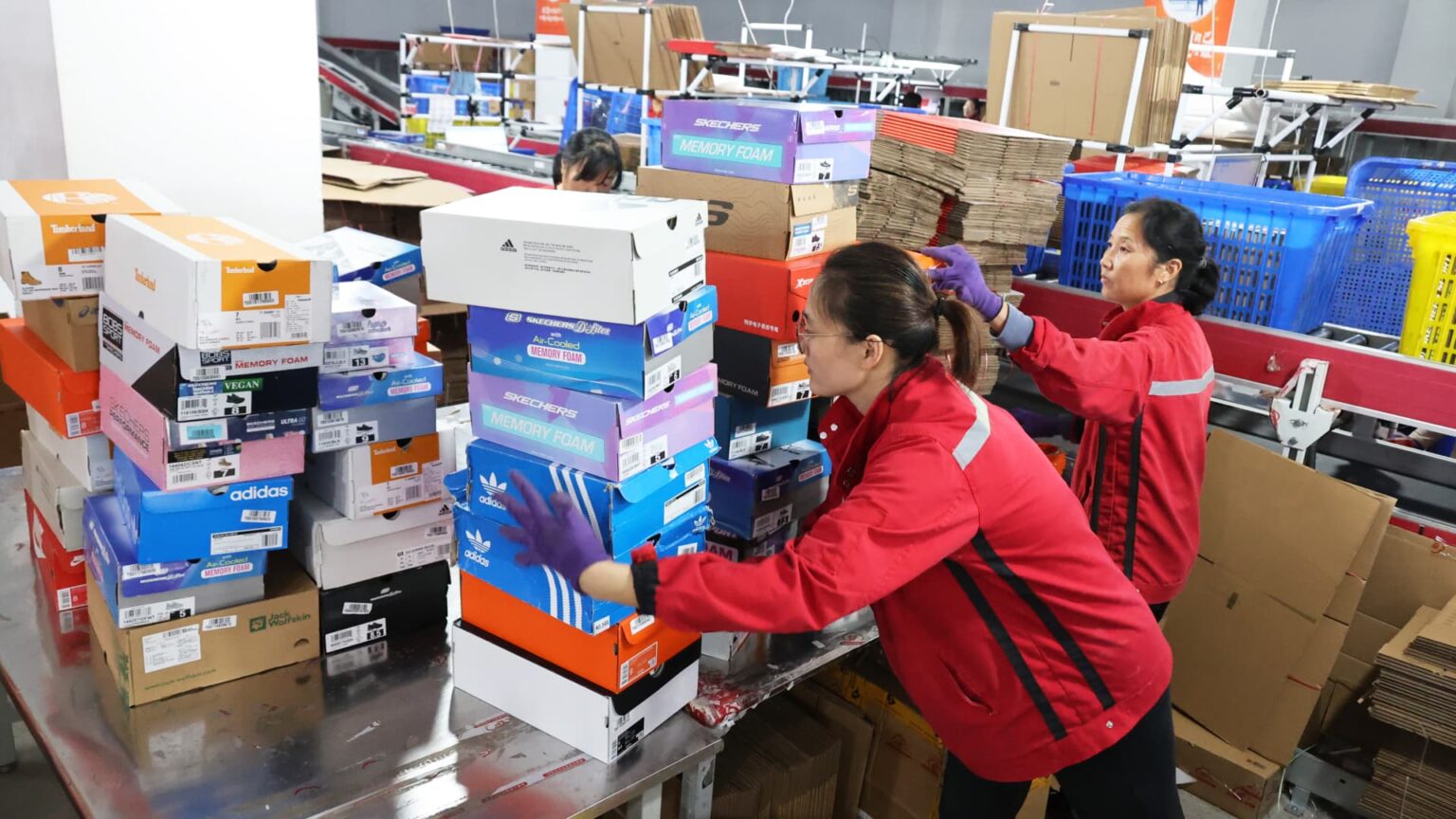Employees package and sort express parcels at an e-commerce company on Nov. 1, 2024, around the Double 11 Shopping Festival in Lianyungang, Jiangsu Province of China.
Vcg | Visual China Group | Getty Images
President Donald Trump signed an executive order on Friday that puts a pause on his closing of the de minimis trade exemption, a provision commonly used by Chinese e-commerce companies Temu and Shein.
The order states that de minimis will be restored for small packages shipped from China, “but shall cease to be available for such articles upon notification by the Secretary of Commerce to the President that adequate systems are in place to fully and expediently process and collect tariff revenue” on those items.
Trump on Saturday suspended the exemption as part of new tariffs that include an additional 10% tax on Chinese goods. The nearly century-old exception, known as de minimis, has been used by many e-commerce companies to send goods worth less than $800 into the U.S. duty-free, creating a competitive advantage.
It was predicted that its removal could overwhelm U.S. Customs and Border Protection employees, as the mountain of low-value shipments already making their way into the U.S. would suddenly require formal processing.
The sudden reversal underscores the uncertainty and volatility that companies and industries are likely to face during Trump’s second term in the White House. In Trump’s two-plus weeks in office, businesses have already had to grapple with an administration that’s made major announcements on policies impacting areas like trade, regulations and the economy, only to quickly backtrack on those decisions.
De minimis has helped fuel an explosion in cheap goods being shipped from China into the U.S. CBP has said it processed more than 1.3 billion de minimis shipments in 2024. A 2023 report from the House Select Committee on the Chinese Communist Party found that Temu and Shein are “likely responsible” for more than 30% of de minimis shipments into the U.S., and “likely nearly half” of all de minimis shipments originate from China.
Critics of the de minimis provision say it’s provided an unfair advantage to Chinese e-commerce companies, and created an influx of packages that are “subject to minimal documentation and inspection,” raising concerns around counterfeit and unsafe goods.
The Biden administration proposed a new rule last September to curb the “overuse and abuse” of de minimis. The rule proposes to strengthen the CBP’s information collection requirements for de minimis shipments.
Temu and Shein have taken steps to grow their operations in the U.S. as de minimis has come under greater scrutiny. Last year, Temu began onboarding Chinese sellers to its site that have inventory at U.S. warehouses, allowing it to ship packages faster to American shoppers. Shein opened distribution centers in states including Illinois and California in 2022, and a supply chain hub in Seattle last year.
https://www.cnbc.com/2025/02/07/trump-delays-ending-of-de-minimis-trade-exemption-targeting-china.html


